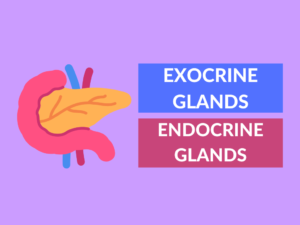Gland vs Organ: Understanding the Differences
Have you ever wondered about the intricate systems in our bodies and how they work? Two important terms that often come up are glands and organs. While both play crucial roles in maintaining the proper functioning of our bodies, they have some notable differences. In this article, we will explore these differences and help you gain a better understanding of glands and organs.
What is a Gland?
A gland is an essential part of the endocrine system that secretes substances, typically hormones, either into the bloodstream or directly into surrounding tissues. Glands are responsible for regulating various bodily functions and maintaining homeostasis.
Examples of Glands
There are several types of glands in the human body, each with its specific function. Some notable examples include:
- Pituitary gland: Controls growth, metabolism, and reproduction.
- Thyroid gland: Produces hormones that regulate metabolism.
- Pancreas: Secretes insulin and glucagon to regulate blood sugar levels.
- Sweat glands: Maintain body temperature by producing sweat.
Uses of Glands
Glands play a crucial role in maintaining overall health and ensuring the proper functioning of various bodily systems. Here are some key uses of glands:
- Hormone regulation: Glands produce and release hormones that help regulate bodily functions.
- Temperature regulation: Glands like sweat glands help maintain body temperature through sweat production.
- Metabolism control: Glands such as the thyroid gland control metabolism and energy production.
- Growth and development: Glands like the pituitary gland influence growth and development in the body.
What is an Organ?
An organ, on the other hand, is a group of tissues that work together to perform specific functions in the body. Organs are larger structures within the body and are composed of various tissues and cell types.
Examples of Organs
Our bodies consist of multiple organs, each responsible for a particular function. Some examples of organs include:
- Heart: Pumps oxygen-rich blood throughout the body.
- Lungs: Facilitate the exchange of oxygen and carbon dioxide during breathing.
- Liver: Detoxifies harmful substances and metabolizes nutrients.
- Kidneys: Filter waste products from the blood and maintain fluid balance.
Uses of Organs
Organs play a fundamental role in the overall functioning of our bodies. Here are some key uses of organs:
- Specific functions: Each organ performs a specific function vital to the body’s overall health.
- Collaborative efforts: Organs work together in organ systems to ensure the proper functioning of the body.
- Survival: Without vital organs like the heart or brain, our bodies cannot survive.
Differences between Glands and Organs
| Difference Area | Gland | Organ |
|---|---|---|
| Composition | Consist of specialized cells and tissues | Composed of different tissues functioning together |
| Size | Relatively smaller in size | Relatively larger in size |
| Secretions | Produces and secretes hormones, enzymes, or other substances | Does not primarily produce and secrete substances |
| Number | Multiple glands in the body | Multiple organs in the body |
| Function | Regulate bodily functions through hormone secretion | Perform specific functions essential for survival |
| Examples | Pituitary gland, sweat glands | Heart, lungs |
| Location | Can be found throughout the body | Located in specific regions of the body |
| Primary role | Produce and release hormones | Perform specialized functions |
| Regulation | Controlled by the endocrine system | Regulated by various bodily systems |
| Interdependence | Relatively independent of other glands | Often reliant on other organs or organ systems |
Conclusion
In summary, glands and organs are both essential components of the human body, but they have distinct characteristics and functionalities. Glands primarily produce and secrete hormones, while organs perform specific functions necessary for survival. Understanding the differences between these terms helps us appreciate the complexity and interconnectedness of our biological systems.
People Also Ask
Here are answers to some common questions about glands and organs:
1. Are glands and organs the same thing?
No, glands and organs are not the same. Glands are specialized structures that produce and secrete substances, primarily hormones, while organs are composed of multiple tissues working together to perform specific functions.
2. How many glands and organs are in the human body?
The human body contains numerous glands, including the pituitary gland, thyroid gland, adrenal glands, and more. As for organs, there are around 80 major organs in the human body, including the heart, lungs, liver, and kidneys.
3. Can an organ also be a gland?
Yes, some organs can also function as glands. For example, the pancreas is an organ that acts as both an exocrine gland (secreting digestive enzymes into the small intestine) and an endocrine gland (releasing insulin and glucagon into the bloodstream).
4. What happens if a gland or organ malfunctions?
A malfunctioning gland or organ can lead to various health issues. For example, hormonal imbalances caused by malfunctioning glands can result in conditions like diabetes or thyroid disorders. Organ failure, such as heart failure or liver failure, can significantly impact overall bodily functions.
5. Can glands or organs regenerate?
While some tissues within glands and organs have regenerative properties (e.g., liver tissue), the ability of glands or organs to regenerate fully varies. In some cases, damaged tissues may be replaced with scar tissue, affecting their functionality.
Remember, our bodies are incredibly intricate, and every component, whether a gland or an organ, plays a vital role in our overall health and well-being.



